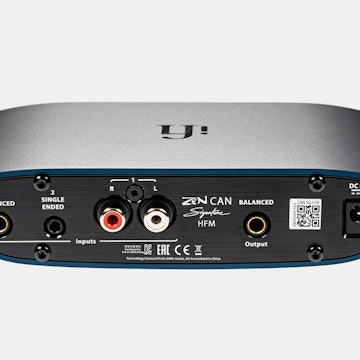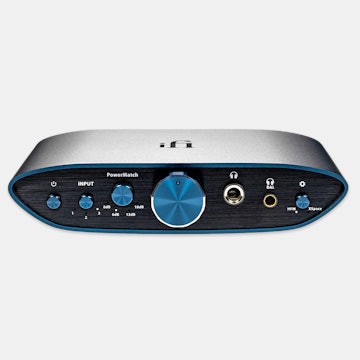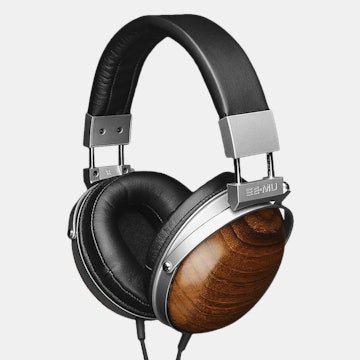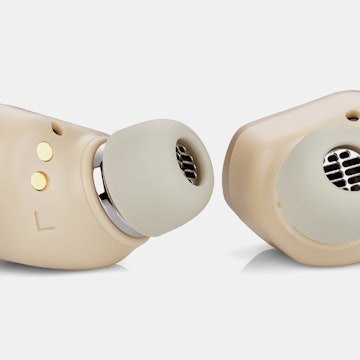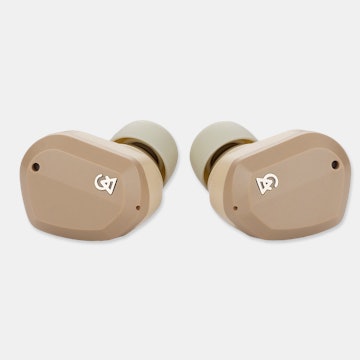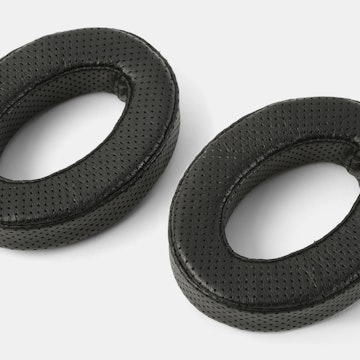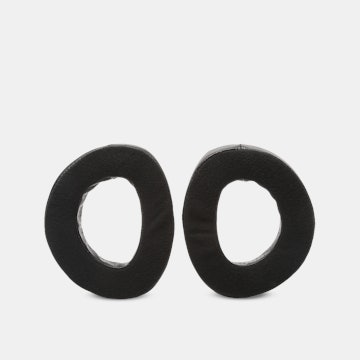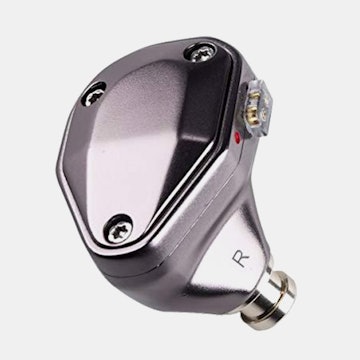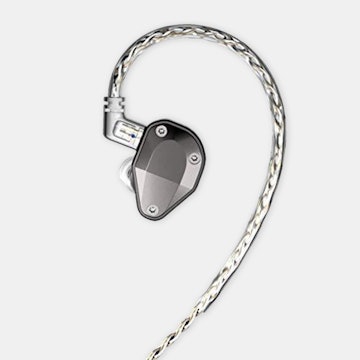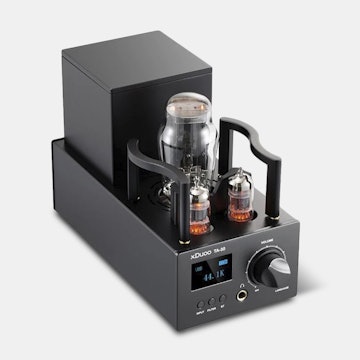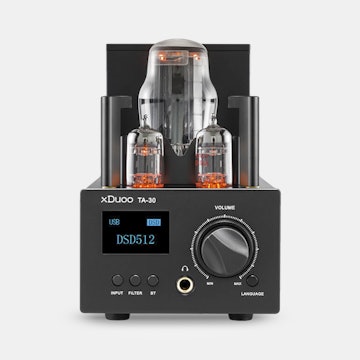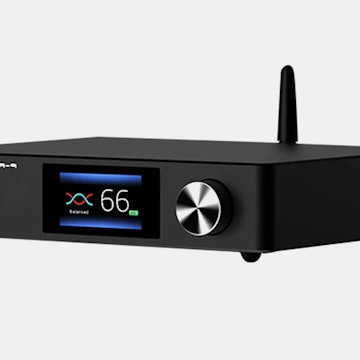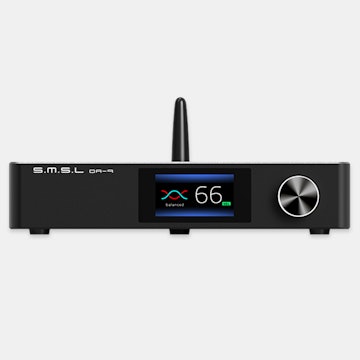Click to view our Accessibility Statement or contact us with accessibility-related questions















Showing 1 of 5034 conversations about:

ibbilbo
97
Dec 3, 2014
bookmark_border
For those of you who, like me, don't necessarily buy into the wonders of expensive after market cables (I'm looking at you PCOCC) but would like to have a shorter cable, try this one...
http://www.ebay.com/itm/310698989813?_trksid=p2060778.m1438.l2649&ssPageName=STRK%3AMEBIDX%3AIT
I did and it works beautifully. :)

EniGmA1987
607
Dec 6, 2014
bookmark_border
ibbilboI am making better cables if you ever want to upgrade. Shielded, 24 AWG, 99.99% oxygen-free copper that is silver plated, shielded mini-XLR with silver plated gold contacts, shielded TRS on the other end with gold plated copper contacts. Basically you cant really get a cable that is any better. I can also put some other end on it instead of a TRS, either an 1/8", dual RCA, XLR. I can make it pretty much any length you want, 5ft -15ft. Ill warn you though, it would be a bit more pricy than that $16 Ebay cable made with all generic stuff. There is an actual difference in sound.
CheesyHotDogPuff
38
Dec 9, 2014
bookmark_border
EniGmA1987I seriously doubt that silver cables can improve SQ. As long as the cable is decently shielded and well built, its good for me.

EniGmA1987
607
Dec 9, 2014
bookmark_border
CheesyHotDogPuffSilver has a higher electrical conductivity than copper, so theoretically sound can travel better through it. Since the signal travels around the outer edge of the conductor, the silver plating over copper will make sure the signal is traveling through the silver part the whole time. Tests dont really show this as a 100% scientifically proven way to increase sound quality for the most part, it all falls within the margin of error, but there are people who say they can hear the difference.
The thicker cable can also lead to more deep bass from the headphones, which is a proven thing, and it is also possible that the higher capacitance could smooth out the treble a bit too. The cable being shielded means it wont pick up as much interference which helps sound quality.

SuperBobKing
145
Dec 9, 2014
bookmark_border
EniGmA1987As far as being more conductive, all that would do is make it negligibly louder because of lower resistance. I am not sure how different the other properties of silver and copper are, but I HIGHLY doubt they are enough to make any noticeable difference in sound. The human brain can very easily convince itself that it hears things that aren't really there.

RoaroftheTiger
27
Dec 9, 2014
bookmark_border
SuperBobKingIn The 'AES 'studies, conducted during the Mid - 70's and published in the ' AES Journal', in 4 or more (monthly) issues; titled "Transmission Lines". Gold versus Nickel Plating showed NO difference (Gold Plated Tips on Plugs etc. But, Nickel to Nickel or Gold to Gold contacts give less Issues on Corrosion). While, "Long Wavelengths "- BASS can be Improved with the use of LEAD ! That's because more Amperage is transmitted. After all, Isn't Your Car's Battery Still connected to It's Electricals, with Lead Clamp Connectors ???
Also, Electrons DO travel on the Outer Surface of Any Wire (even the Outer Insulation of Any Cable ! ! !). But This so called "skin effect" of Electrons; enhanced with Silver or Gold has little effect on the Sound. In general terms; 'Amps', move a Speaker Cone - voice coil, NOT Voltage. ;)

SuperBobKing
145
Dec 9, 2014
bookmark_border
RoaroftheTigerV = IR More voltage means there will be more current as well. The voltage applied and the impedance of the headphones and cable (and whatever else happens to be in between) determine the amount of current. Lead has a much higher resistivity than copper (about 12 times higher) so it's resistance is higher meaning less current. I wasn't sure whether or not the ratio of the impedance of one metal to another would be the same across all frequencies. So because I have no life so I graphed the impedance of a lead and copper wire with a diameter of 0.5mm and length of 1m versus the frequency of the signal going through it.

As you can see the impedance is so small compared to the impedance of headphones I think it would be impossible to detect the difference. Lead would have a stronger increase in bass than copper.
I had a reason for that image but then I realized that the reason was wrong but I decided to leave it anyway.
It is three in the morning here, but I think I caught the mistakes in math. If I missed something or someone wants to see any other things (relating to these graphs) graphed let me know. EDIT: I just got inductance confused with impedance. I changed it in the post but don't feel like changing it in the picture. Just know that the picture is wrong.

As you can see the impedance is so small compared to the impedance of headphones I think it would be impossible to detect the difference. Lead would have a stronger increase in bass than copper.

I had a reason for that image but then I realized that the reason was wrong but I decided to leave it anyway.
It is three in the morning here, but I think I caught the mistakes in math. If I missed something or someone wants to see any other things (relating to these graphs) graphed let me know. EDIT: I just got inductance confused with impedance. I changed it in the post but don't feel like changing it in the picture. Just know that the picture is wrong.
CheesyHotDogPuff
38
Dec 11, 2014
bookmark_border
EniGmA1987I know that silver has lower resistance compared to a copper cable, and that could in theory improve sq, but for the price I honestly don't see why someone would spend, say $200 on a headphone and $100 on a cable when there is a $300 headphone that will sound better then the $200 + $100 cable option. I can sort of see why someone would do it on an endgame headphone, but not on a $200 headphone.
chris.yw
87
Dec 11, 2014
bookmark_border
CheesyHotDogPuffunfortunately I found silver cable unfavorable as audio cable. A good quality OFC copper will out-perform it without a question.That's why silver cable is not widely used in hifi product, and almost no use in pro-audio set-up.

OrangeFlavored
20
Dec 11, 2014
bookmark_border
chris.ywYeah I agree. I think that the problem with silver is it's too shiny so it reflects most of the audio quality away like a mirror. Copper keeps the audio inside instead of reflecting it.

EniGmA1987
607
Dec 12, 2014
bookmark_border
chris.ywThere is only 1 reason silver is not widely used as a conductor material and that is cost. Just about all the very expensive, highest end companies have silver in their products. oxygen-free copper will not out-perform a silver cable of proper purity, but what IS up for debate is: Will a plain 99.99% OFC cable sound the same or similar enough to a OFC cable that has been plated in pure silver? That is where the opinions differ.
chris.yw
87
Dec 16, 2014
bookmark_border
OrangeFlavoredMy personal experience is that silver took away the bass while not really outstanding in mids and highs. A good quality OFC copper (not those prime cables) could provide the missing bass while keeping the same level of performance in mids and highs.

Cyberdyne.Systems.Model.101
0
Dec 17, 2014
bookmark_border
EniGmA1987How do you plan on blocking the silver oxidizing exactly? Gold does not oxidize and is electrically good, that is why gold (more expensive than silver) is used as a standard. Once your silver oxidizes (tarnishes) you no longer have a favorable electrical path.

Kamaka
166
Dec 17, 2014
bookmark_border
Cyberdyne.Systems.Model.101http://www.btg-audio.com/cable-facts
Just going to leave this here. I agree 100% with the points made.

EniGmA1987
607
Dec 17, 2014
bookmark_border
Cyberdyne.Systems.Model.101You seem to be forgetting something... How are your cables with copper? What about the higher end oxygen-free copper cables? You know copper will oxidize too right? That is why nickel and gold are used as plating for the CONNECTORS. However cable itself is very rarely coated in nickel or any other material, it is always plain copper inside an insulator. This insulator keeps oxidization away for the most part since moisture, moving air, etc doesn't really get inside. Same exact thing with silver plated copper cables or even full silver cable. You still have gold or nickel plating on the connectors themselves. Personally, I prefer gold plating as I know how terrible nickel is as an electrical conductor so I dont see the logic in using good cable if you then put some nickel between your plug and that expensive cable.
Also, a bit off topic, but never use nickel plated lug connectors or nickel plated wire for car usage, mainly for electrical within the engine bay. Nickel will develop extreme electrical resistance when subjected to long periods of high (200+) heat such as what comes off your car's engine. This can lead to serious electrical problems in the car as wires begin to have too much resistance.
Also, a bit off topic, but never use nickel plated lug connectors or nickel plated wire for car usage, mainly for electrical within the engine bay. Nickel will develop extreme electrical resistance when subjected to long periods of high (200+) heat such as what comes off your car's engine. This can lead to serious electrical problems in the car as wires begin to have too much resistance.
NinjaQuick
11
Dec 17, 2014
bookmark_border
EniGmA1987Pretty much: Cables will fail before the coating on the plug wears out.


